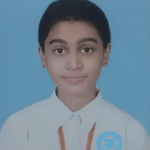Rohana Khattak, 16, Islamabad has invented a new word in the English language. Her word was declared a inner among other 500 enteries from all around the world.
What actually happened?
New York Times’ “February Vocabulary Challenge” invited middle and high school students to suggest a new word of their own. They planned to publish the winner as NYT’s Word of the Day on April 1, otherwise known as April Fool’s Day.
More than 500 students shared their ideas in response to the Invent a Word Challenge. Many of the words captured the ways teenagers are navigating common experiences, including the coronavirus pandemic, the complexities of life online and the existential feelings caused by the various challenges their generation faces. The strongest entries provided an interesting word, an example sentence and a compelling reason that word should exist.
Who won the competition?
The winner of the challenge was 16 year old Rohana Khattak from Islamabad, who suggested the word: Oblivionaire.
oblivionaire \ ə-ˈbli-vē-ə-ner \ noun
A billionaire who chooses to be blind to the disparity and inequality that his or her wealth is creating
Derivation: a combination of “oblivious” and “billionaire”
Rohana’s example sentence:
Gen Z’s furor over the so-called oblivionaires who ignore global crises is blowing up on social media, in a campaign being noticed by many global and political figures.
Rohana’s explanation for why this word is needed:
According to Oxfam International, the “world’s 10 richest men more than doubled their fortunes” to $1.5 trillion “during the first two years of a pandemic that has seen the incomes of 99 percent of humanity fall and over 160 million more people forced into poverty.”
We live in an era that has multiple global catastrophes taking place at the same time and inequality to the point that, while millions of children are starving to death, others have more money than they can spend. This egregious imbalance is not drawing enough attention, and we need to have the vocabulary to name the people who, in the lap of luxury, detach themselves from responsibility to the millions of people suffering and in agony around the planet.
What were the other words?
Runners-Up
MILANA, RUSSIA
heartdown (noun)
A period when, after being hurt or betrayed, your heart is recovering and you are reluctant to let others get close to you. More and more people go into heartdown after parting with a loved one.
MUHTASIM SADAT, BANGLADESH
mondize (verb)
To take away fun after a brief spell of freedom, or give a task after a break, the way Monday ends the freedom of the weekend. The teacher mondized his students by giving homework through online platforms just after the first week of summer break.
JENNIFER, NEW YORK
mnemonty (noun)
The feeling of knowing, while you are still in the moment, that something occurring will be remembered forever. As I was standing on the dock, looking out at the lake for the last time, a feeling of mnemonty washed over me like a soothing breeze.
PAUL NORBERG, CUPERTINO, CALIF.
tacine (adjective)
A serene, unblemished scene in nature that feels untouched by humanity. As Wendy gazed upon the tacine vistas of the Yukon, she felt an overwhelming sense of awe.
LINDSEY, HUNTERSVILLE, N.C.
trendaissance (noun)
The rebirth, or renaissance, of a cultural trend or meme after a period of unpopularity or dormancy. The grunge aesthetic is enjoying a trendaissance on social media right now.
Honorable Mentions
anivert (noun) by Khalid, Massachusetts
A person who loves anime and relies on it for self-expression. Hey, Zoey! I heard you’re obsessed with anime. HA! You’re an anivert. … It’s OK, I’m one too.
briskkip (noun) by Saba Salehi, Austin
A sleeplike state that lasts only a moment before you jerk fully awake again. I kept taking briskkips in the car since I was tired, but all the turns kept me from falling asleep.
Covidloop (noun) by Pablo
The act of involuntarily staying home or isolating for long periods of time, while continuing normal activities. Yeah, man, I haven’t been sick for like a week, but I’m in a Covidloop and I swear I have to get out.
daybe (noun) by Logan Cederlof, Murray, Utah
The day before yesterday. The Super Bowl was daybe, and people are still talking about the advertisements.
eustricity (noun) by Charly, Albuquerque
A euphoric feeling of passion and serotonin that occurs when listening to a pleasant music piece that gives you goose bumps; similar to the feeling of electricity going through your body. I get such eustricity listening to guitar solos that I just want to run up to the rooftop and dance and sing my heart out.
faux-star (verb) by Caitlin Cherenfant, Miami
To put oneself into an imagined scenario as a character of a movie, show or book; to daydream about oneself as a character. My sister Marie often pauses shows to imagine the smarter decisions she would make as the main character — a common way to faux-star.
fick (verb) by Charlie, Wilmington, N.C.
To fake being sick out of a strong desire to stay home. Since Tommy stayed up all last night watching the game, he decided to fick the next morning because the thought of school was unbearable.
fsh (noun) by Neel Chellapilla, Cupertino, Calif.
A joke that has been overused and therefore is not funny to anyone who has heard it before — like this one: What do you call a fish with no eyes (i’s)? A fsh. He proceeded to tell a fsh, which nobody laughed at.
gubble (noun) by Theo Masella, Beverly, Mass.
The space in between one’s toes, including webbed skin. The Olympic swimmer’s wide, webbed gubbles propelled him to first place.
inflobia (noun) by Sergio, Freehold, N.J.
Fear of price inflation. More people are getting inflobia as prices go up.
lightcrisp (adjective) by Amelia D., Austin
Feeling a burning, sizzling sensation after being in overhead lighting for an extended period of time. I just feel so lightcrisp after that double-period class.
nonexiwort (noun) by Hetvi Thakker, Monroe Township, N.J.
The words left unsaid; thoughts that exist in our minds but are never developed into words said out loud. Even long after their conversation, she still dwelled on the nonexiwort, wishing she had the courage to voice her opinion — and wondering what would have happened if she had.
noscipate (verb) by Olivia Liu, San Jose, Calif.
To anticipate nostalgia, as in when one feels nostalgic for something that hasn’t passed yet. My basketball season is quickly coming to an end, so I am currently noscipating about it.
seath (noun) by Blake Lewis, Vernon, Conn.
The health of the sea. Pollution is decreasing our world seath rapidly.
skocean (noun) by Miia Backstrom, Wilmington, N.C.
1. When you cannot distinguish where the sky separates from the ocean because the shades of blue are so alike. 2. Used figuratively: When you can no longer see the difference between two things or people. I was alarmed to realize a skocean had occurred between me and my worst enemy and I was becoming what I thought I hated most.
solumidnox (noun) by Kaitie Wihbey and Becca Schneider, Glastonbury, Conn.
When you are awake in the middle of the night and feel lost and invisible, as though you are the only person who exists. As I lay in my bed and solumidnox took over, I asked myself, Why is this world the way it is? Who really am I? What is the purpose of life?
TikTalk (verb) by Madeline Ortiz, Farmingdale, N.Y.
To express oneself with trending dance or body movements while involved in otherwise unrelated conversation. It’s so distracting to try to have a serious discussion with that girl since she is always TikTalking.
tilent (noun) by Winn Godier, Wilmington, N.C.
The state of being so tired you are silent; being quiet not out of rudeness but because of exhaustion. Because I stayed up all night studying, I was tilent this morning and didn’t acknowledge my parents.
Also Checkout: The president wants you to read these books!
![]()

Bashir Ahmad is a medical student working as a freelance writer, graphic designer and social media manager for Pakscience, Scientia Pakistan and many other platforms. Tap on the social media links below to connect with him.




